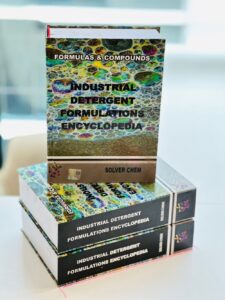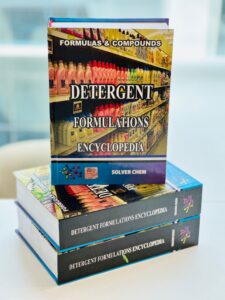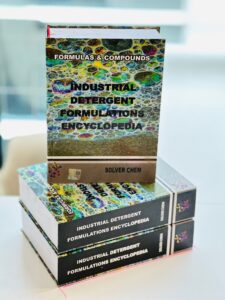
 🧪 Chlorinated Industrial Dishwasher Detergents – Production, Formulation and Properties
🧪 Chlorinated Industrial Dishwasher Detergents – Production, Formulation and Properties
Overview:
Chlorinated industrial dishwasher detergents are powerful, high-alkaline cleaning agents that combine bleaching, degreasing, and disinfecting capabilities for professional dishwashing systems.
They are primarily used in restaurants, hospitals, catering services, and large-scale kitchens, where hygiene, sanitation, and speed are essential.
These detergents contain sodium hypochlorite or chlorinated oxidizing compounds that release active chlorine in the wash solution.
This provides excellent bleaching and stain-removal performance, effectively eliminating tea, coffee, and protein residues while ensuring microbial control.
Chlorinated formulations are ideal for automatic dishwashers operating at 55–80°C, providing rapid cleaning and bright results on glassware, porcelain, and stainless steel.
They are, however, not recommended for aluminum or silver items due to possible surface oxidation.
Modern chlorinated detergents often include corrosion inhibitors, low-foam surfactants, and water softeners, balancing cleaning strength with equipment safety.
They remain the preferred choice for institutional hygiene applications requiring maximum sanitization and whitening power.
Production and Formulation:
The production of chlorinated industrial dishwasher detergents involves precise chemical control to ensure product stability and safe chlorine handling.
Formulations are typically alkaline and liquid, though powder forms are also used for institutional applications.
Typical formulation components include:
-
Active Chlorine Source: Sodium hypochlorite, sodium dichloroisocyanurate (NaDCC), or trichloroisocyanuric acid (TCCA).
-
Alkaline Builders: Sodium hydroxide, sodium metasilicate, or carbonate to raise pH and enhance degreasing.
-
Chelating Agents: EDTA, HEDP, or MGDA for water softening and preventing mineral deposits.
-
Surfactants: Low-foam non-ionic surfactants for improved wetting and rinsing.
-
Corrosion Inhibitors: Silicates or phosphonates to protect stainless steel components.
-
Stabilizers: Control chlorine release and prevent decomposition.
-
Defoamers: Ensure mechanical efficiency in automatic dishwashers.
Production is carried out in stainless steel or chlorine-resistant polyethylene tanks, under controlled temperature (25–35°C) and pH monitoring.
Chlorine donors are added last to minimize decomposition during blending.
Final products are stored in opaque, vented HDPE containers to protect against light and gas accumulation.
Properties:
-
Strong Oxidizing Power: Provides effective bleaching and stain removal.
-
High Alkalinity (pH 11–13): Ensures rapid degreasing and protein breakdown.
-
Disinfection Capability: Eliminates bacteria and organic residues.
-
Low-Foam Behavior: Suitable for automatic dishwashers and dosing systems.
-
Fast Cleaning Performance: Ideal for short-cycle institutional washing.
-
Brightening Effect: Restores brilliance to glassware and ceramics.
-
Scale Prevention: Contains chelating agents to minimize mineral buildup.
-
Corrosion Control: Includes silicates or phosphonates to protect equipment.
-
Thermal Stability: Maintains performance at 55–80°C.
-
Safety Precautions: Requires careful handling and storage due to chlorine reactivity.
Summary:
Chlorinated industrial dishwasher detergents offer exceptional cleaning, bleaching, and sanitizing power for demanding institutional and food-service applications.
Their active chlorine chemistry ensures complete stain oxidation and microbial control, producing spotless, hygienic dishware in every wash.
With advancements in corrosion inhibitors and stabilizers, these formulations now deliver maximum cleaning efficiency with controlled chlorine safety, making them indispensable in professional disinfection and hygiene systems.


